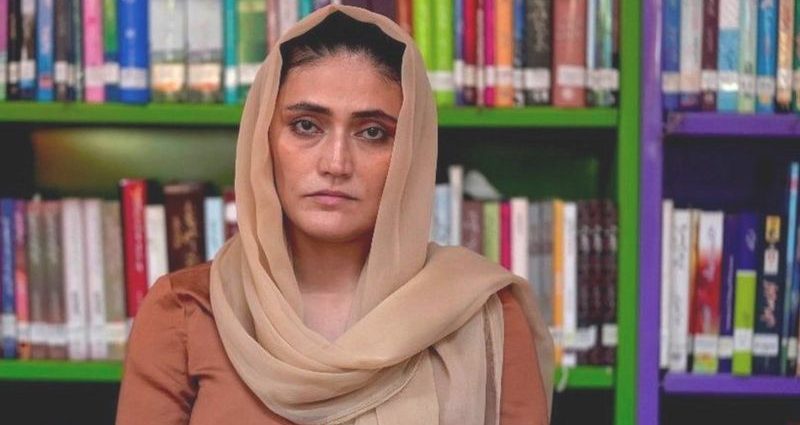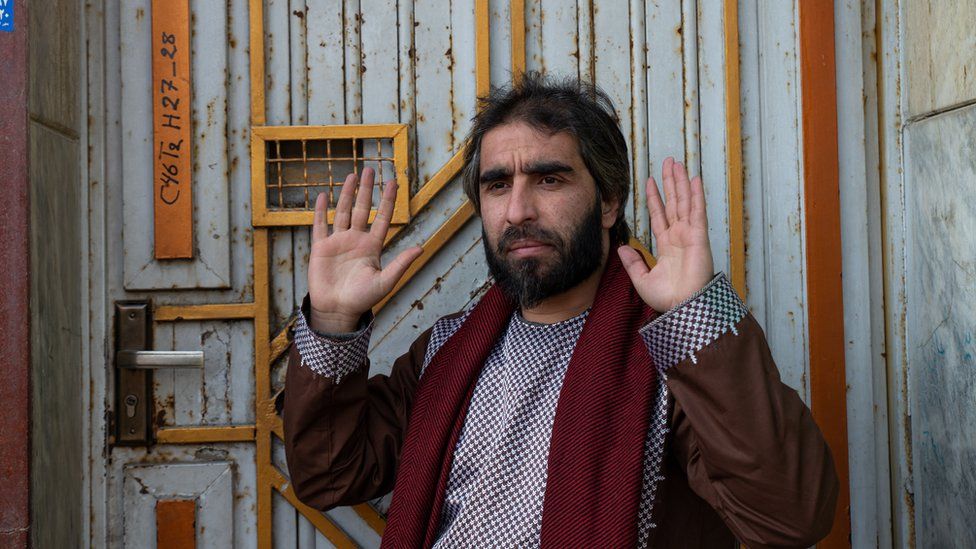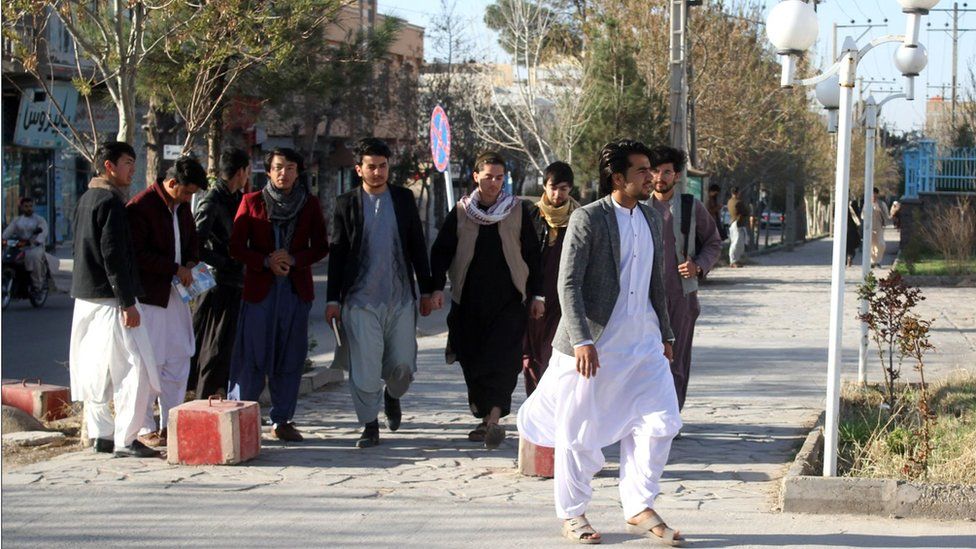
Afghan universities have begun reopening after a winter break, but the new term is another painful reminder to young women of how their world is shrinking.
The higher education ministry announced late last year that female students would be barred from returning to class., reversing policies that had allowed them to continue their studies after the Taliban government took power in Kabul in 2021.
“Now I’m a No-one,” said a fourth-year computer science student.
“My plan was to finish university, do my masters, and then my PHD. I wanted to work and serve my nation, my people, my country. I can’t do that now.”
Just months earlier, she and her friends had been talking about how to prepare for graduation.
Now several young women who spoke with the BBC said they cried as they shared memories of happy hopeful times with friends, and watched their brothers and cousins resume studies without them.
Atefa, the only one willing to let her first name be used for the article, is a 19-year-old computer science student in Herat who didn’t even have a chance to form those memories.
She had just passed the university entrance exam and planned to become a website developer, but “all that has been wasted,” she said.
“My friends and I put a lot of pressure on ourselves to pass the exam [but] my dream couldn’t come true… it has come to an end.”
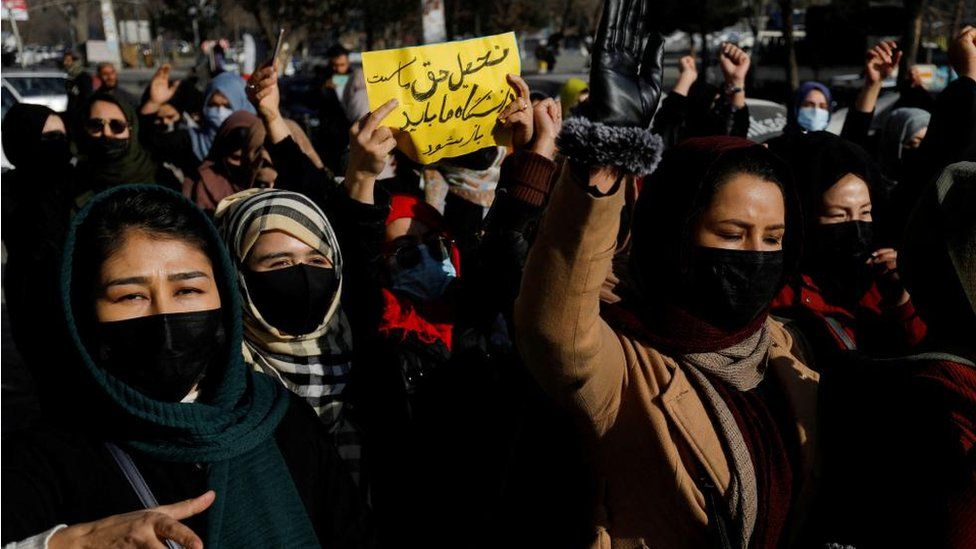
There have been a lot of endings for Afghan women as the Taliban steadily rolls back their rights and freedoms, squeezing them out of public space.
Girls had already been excluded from secondary schools last year before the government applied the same ban to university students.
Several Taliban officials say it’s temporary. They’ve presented various explanations for it, from alleged violations of a strict dress code, to a lack of funds, to the need to remodel the syllabus along Islamic lines.
But there is evidence of disagreement within the ranks, with the clerics advising Taliban supreme leader Hibatullah Akhundzada strongly opposed to education and work for women.
The reality is that most universities had already introduced measures to separate men and women.
“If they are telling us to wear a hijab, we are happy to do that,” said a second-year theatre student at Kabul University. “If we need to have a segregated class, we are happy for that to happen, but just let us learn.”
The ban has been traumatic for male students as well.
Returning to class felt like a funeral, said one in the east of the country.
“The feeling was as though someone had died in our university,” he said. “Everyone was really upset. I know the reason… but I was scared to speak up because I thought that the Taliban government would arrest me.”
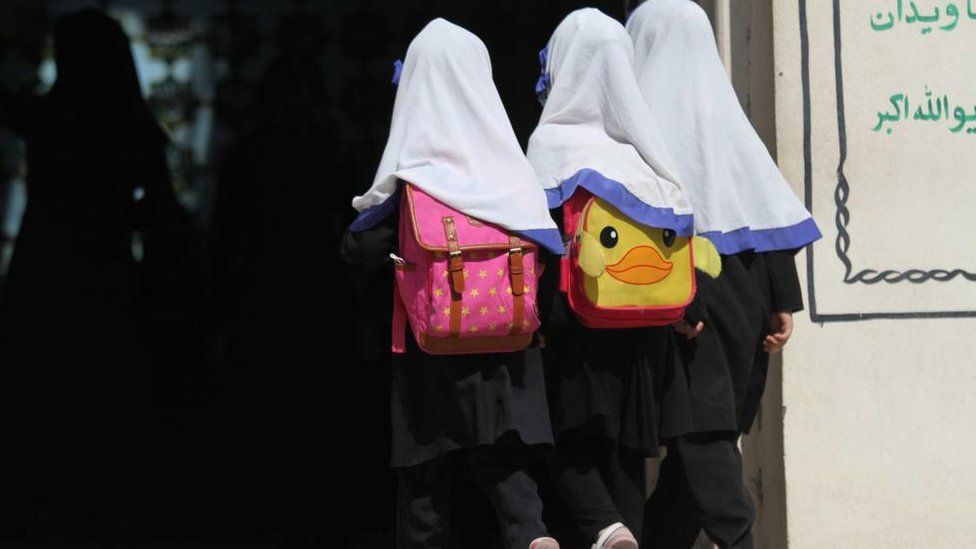
“You can’t build our country with only men,” said another young man in Parwan province. “We need women to work with us shoulder to shoulder.”
He told the BBC that even though it’s women who’ve been banned, “we feel there are restrictions on us as well.”
Protests have been muted. The Taliban broke up a small demonstration outside the United Nations office on Tuesday. Social media also showed a handful of female students apparently sitting on the street outside Kabul University reading their books.
Some put out a joint statement calling on male students to boycott classes until universities open for all. But so far that hasn’t happened.
A second-year language major said a boycott would be a waste of time because nothing would change.
But he challenged the Taliban to “show me a single quote in the Quran that girls should not be educated”.
“If I’m right and there isn’t any such passage, then girls should be allowed to go to schools and universities,” he said. “We need … female employees because men can’t do those jobs alone.”
The Taliban’s treatment of women and girls has outraged the international community, increasing Afghanistan’s isolation at a time when its economy is collapsing. A UN report released this week said the restrictions could amount to crimes against humanity.
In an interview with the BBC Pashto language service, the Taliban’s Foreign Minister Amir Khan Muttaqi acknowledged there were “some shortcomings” when it came to employment and education for women.
But “it is not like everything completely shut,” he said, noting that tens of thousands of women were still working in government ministries.
“We hope the problems will be solved gradually,” he added without elaborating. “The world should have patience for this.”
Some female students are clinging to a rumour that the education ban may be lifted on 23 March. That’s the formal start to the academic year – the universities have opened early so students could make up lessons they missed last year.
But that is a desperate hope borne out of a profound sense of loss and despair.
“Let us complete our education,” said the theatre student, “so that we can do something about our future.”
Related Topics
-
-
30 November 2022
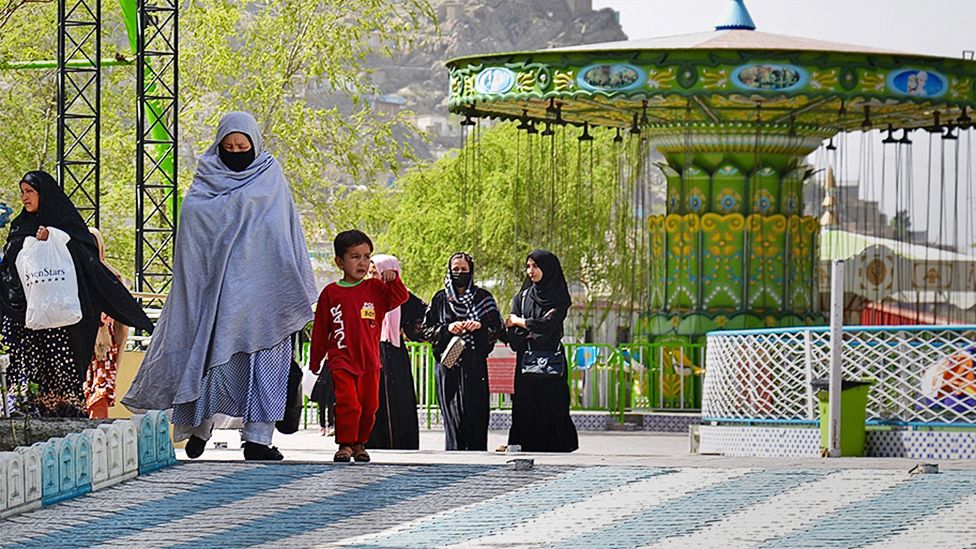
-
-
-
12 August 2022
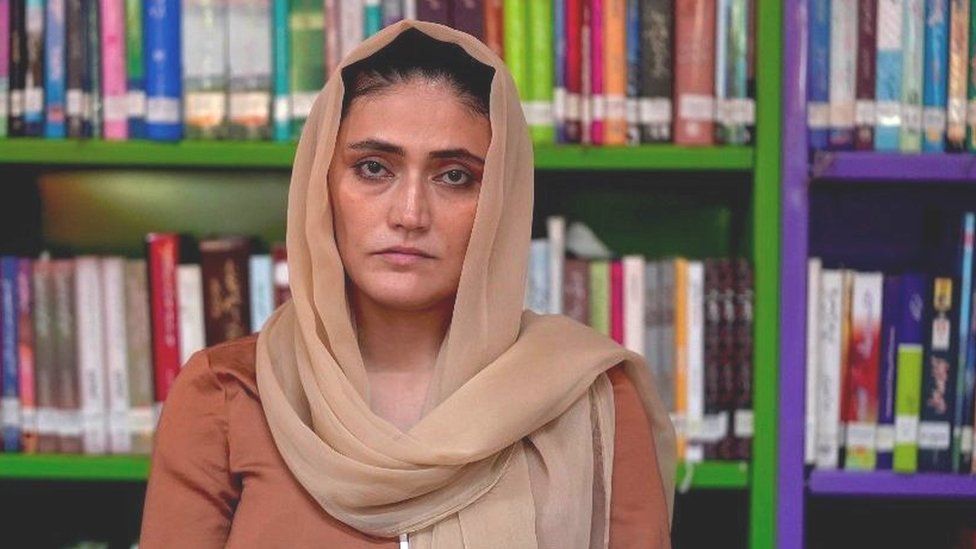
-

